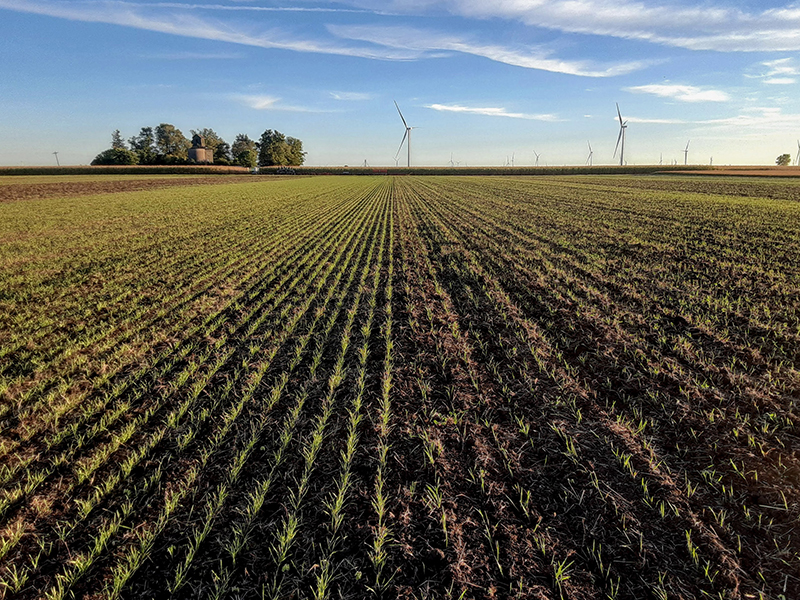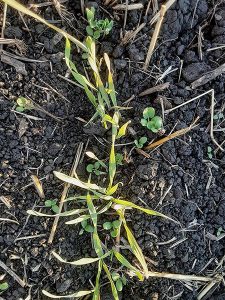USDA grant to support intensive research on ecological processes affecting organic farming

Published: December 9, 2022
Category: Organic News, The Non-GMO Blog
Purdue University has received a four-year, $1.5 million grant from the U.S. Department of Agriculture’s National Institute of Food and Agriculture to explore the ecology of organic cropping systems in Indiana, Illinois, and Wisconsin.
Purdue, in collaboration with the University of Wisconsin-Madison and Western Illinois University in Macomb, will assess weed, insect, and pathogen pressure on corn, soybeans, and small grains cultivated under standard and ecologically intensified organic farming systems, along with comparing yields across systems.
“In the ecologically intensified approach we try to harness as many of the benefits that nature and ecology provide as we can, all to improve soil health and minimize erosion,” said Christian Krupke, a professor of entomology in Purdue’s College of Agriculture. That includes using inoculants — microbial enhancements — on the seed, planting crops that attract beneficial insect predators and testing novel crop rotations.
“Ecology is happening no matter what,” Krupke said. “Our challenge as researchers and farmers is to harness more of that ecology for our benefit.”
The fieldwork will take place at the Northeast Purdue Ag Center, the University of Wisconsin Arlington Agricultural Research Station, and the Western Illinois University Allison Organic Research and Demonstration Farm.
“Cool beans!” exclaimed soybean specialist Shawn Conley, professor of agronomy at the University of Wisconsin-Madison. “Wisconsin has an extensive number of organic dairy farmers, and soybean is a key protein source for these farmers,” he said, noting that his state leads the nation in organic field crop acreage.
“This is an exciting opportunity to expand our work with the organic community in Wisconsin and beyond.”
The collaboration will enable the three universities to study ecological processes at work in organic farming systems more intensively than ever before, said Joel Gruver, professor of soil science and sustainability agriculture at Western Illinois University.

This crimson clover with cereal rye is being organically farmed in a collaborative project involving Purdue University, the University of Wisconsin-Madison, and Western Illinois University. (Credit: Joel Gruver/Western Illinois University)
“Historically we have primarily focused on ‘what’ and ‘how’ to do organic farming effectively. For example, how to control weeds and supply nutrients,” said Gruver, who also directs WIU’s Organic Research Program. “This collaboration will allow us to take an integrated look at ‘why’ and ‘how’ questions. For example, why does biodiversity contribute to ecological functions like biocontrol and nutrient cycling, and how can we capture the benefits of biodiversity more effectively in organic systems?”
Source: Purdue
To view source article, visit:
Organic & Non-GMO Insights December 2022




